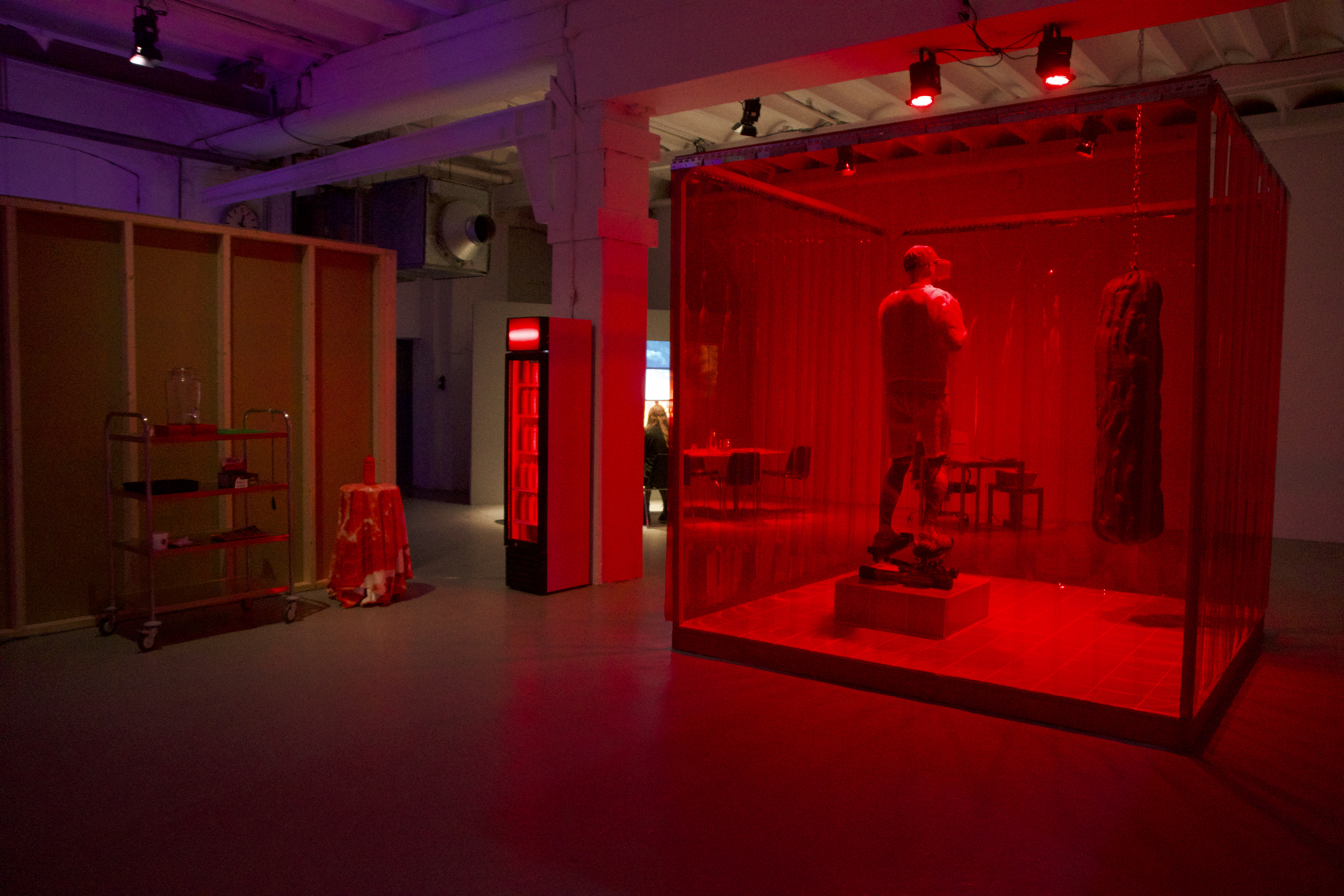Corpus Politicum:
A Lively Vessel
Performed as part of Durational Space #5
at LILITH PERFORMANCE STUDIO, 2024
Duration: 3 hours
Performance: Andreas Engman / Recovery Drink: Andreas Engman / Sound: Andreas Engman / Costume: Annie Johansson / Textile Sculpture: Annie Johansson & Andreas Engman / Installation: Andreas Engman, Petter Pettersson & Lo Pettersson-Lundgren / Light Design: Lo Pettersson-Lundgren & Andreas Engman / Photography: Petter Pettersson
(Access the sound work HERE!)
In this final act of three on lacto-fermentation, I gaze more toward the body than in previous installments. Performative and metaphorical aspects of lactic acid production are met in Corpus Politicum, The Body Politic, a direction in political philosophy where the body is used as a metaphor for the sovereign nation-state or other institutions in society (see social organism and social body). Further examples are when an organization such as the UN refers to its various decision-making bodies; about nations, one speaks of heads of state, and in ancient times, political crises were often equated with a biological disease. The 17th-century British philosopher Thomas Hobbes (1588-1679), in his book Leviathan or The Matter, Form, and Power of a Common-Wealth Ecclesiasticall and Civil (1651), describes parts of the state/body as follows; 'sovereignty is the soul, and magistrates are the body's the joints, reward and punishment, its nerves. Money is the blood providing nutrients from the plenty of nature.'
The Body Politic has long been one of the most widely used metaphors for states and institutions in political discourse. Although it is also commonly used today, many people problematize its historical and contemporary effects on how we view our environment and who and what populates it. Historically, a form of immunological discourse has shaped our view of society and who is described as pathogenic or apatogenic in the state-body relation, who or what is dangerous and who or what is beneficial. A form of antiseptic relationship to what is considered foreign under prevailing norms. Something that feels more relevant than ever in today's protectionist society. In her book, The Microbial State - Global Thriving and the Body Politic, Professor of Political Theory Stefanie R. Fishel argues that climate change, neoliberalism, mass migration, and other aspects of the late Anthropocene have increasingly highlighted the limitations of this metaphor. Just as the human body is not whole and separate from other bodies but is made up of microbes, bacteria, water, and radioactive isotopes - she argues that the body politic of the state exists in a dense entanglement with other communities and forms of life. Reframing the concept of the body politic to accommodate more significant levels of complexity, Fishel suggests, will result in new configurations for the political and social organization necessary to build a world where the planet's inhabitants do not merely live but actively thrive.

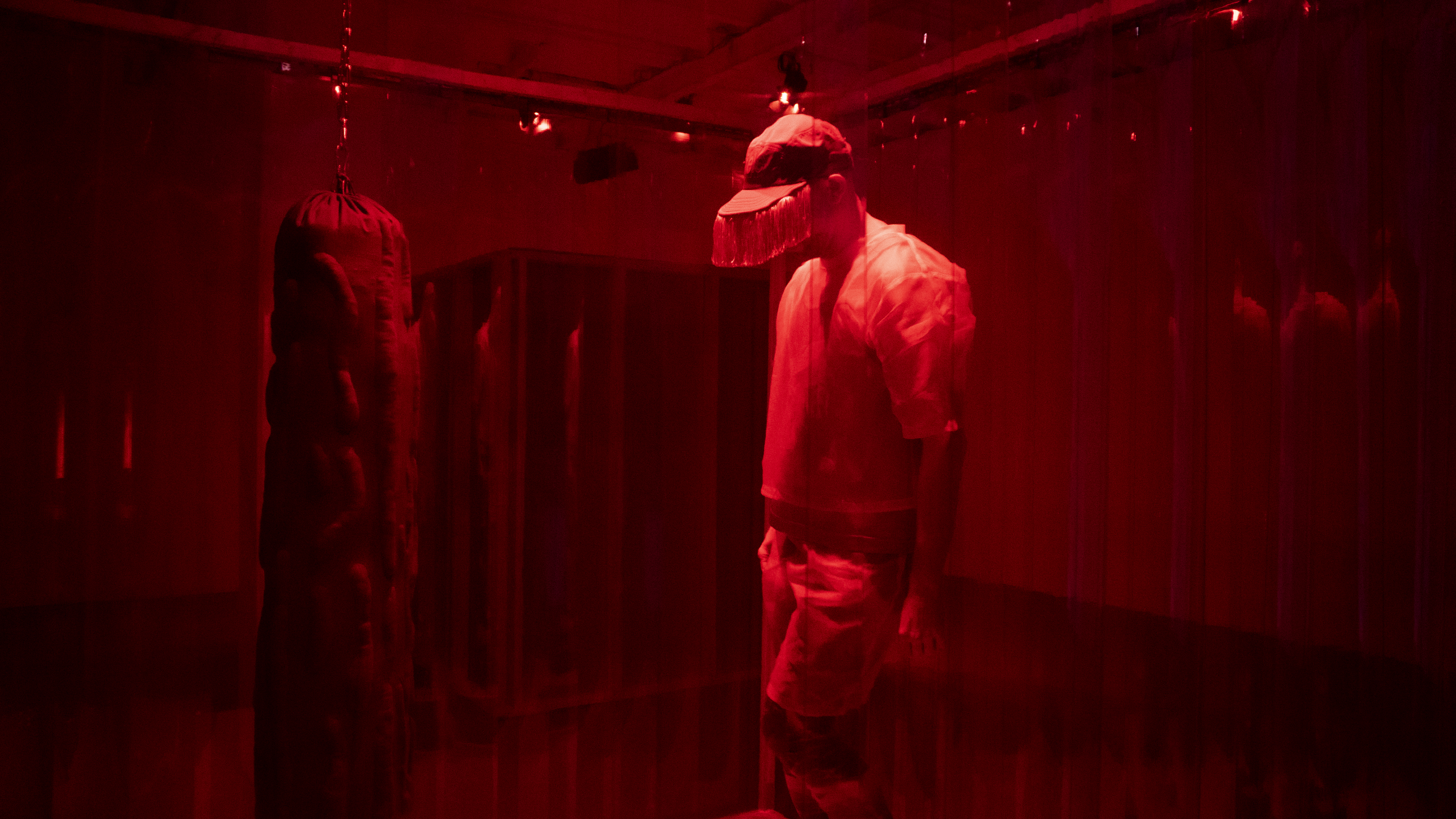
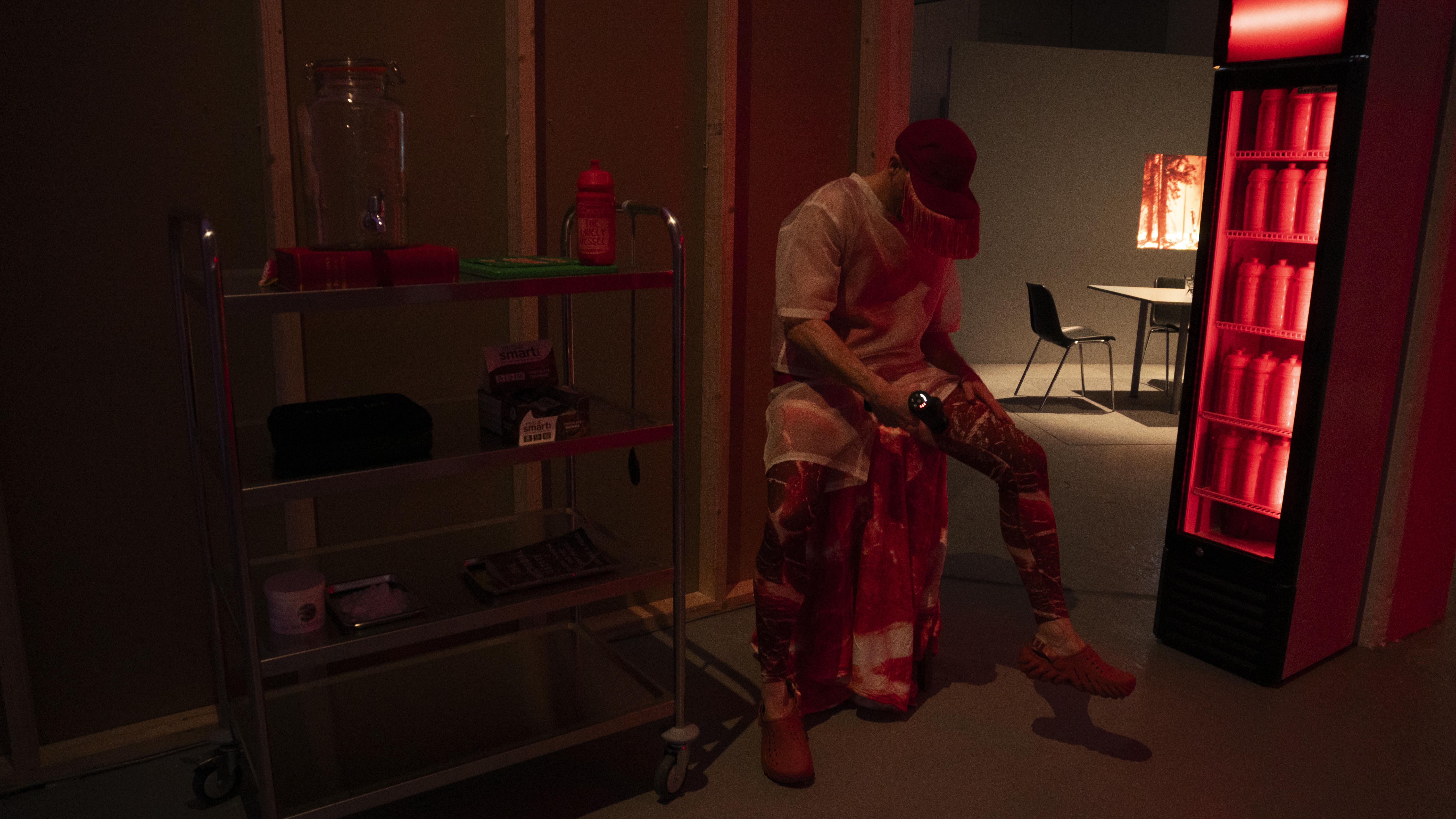
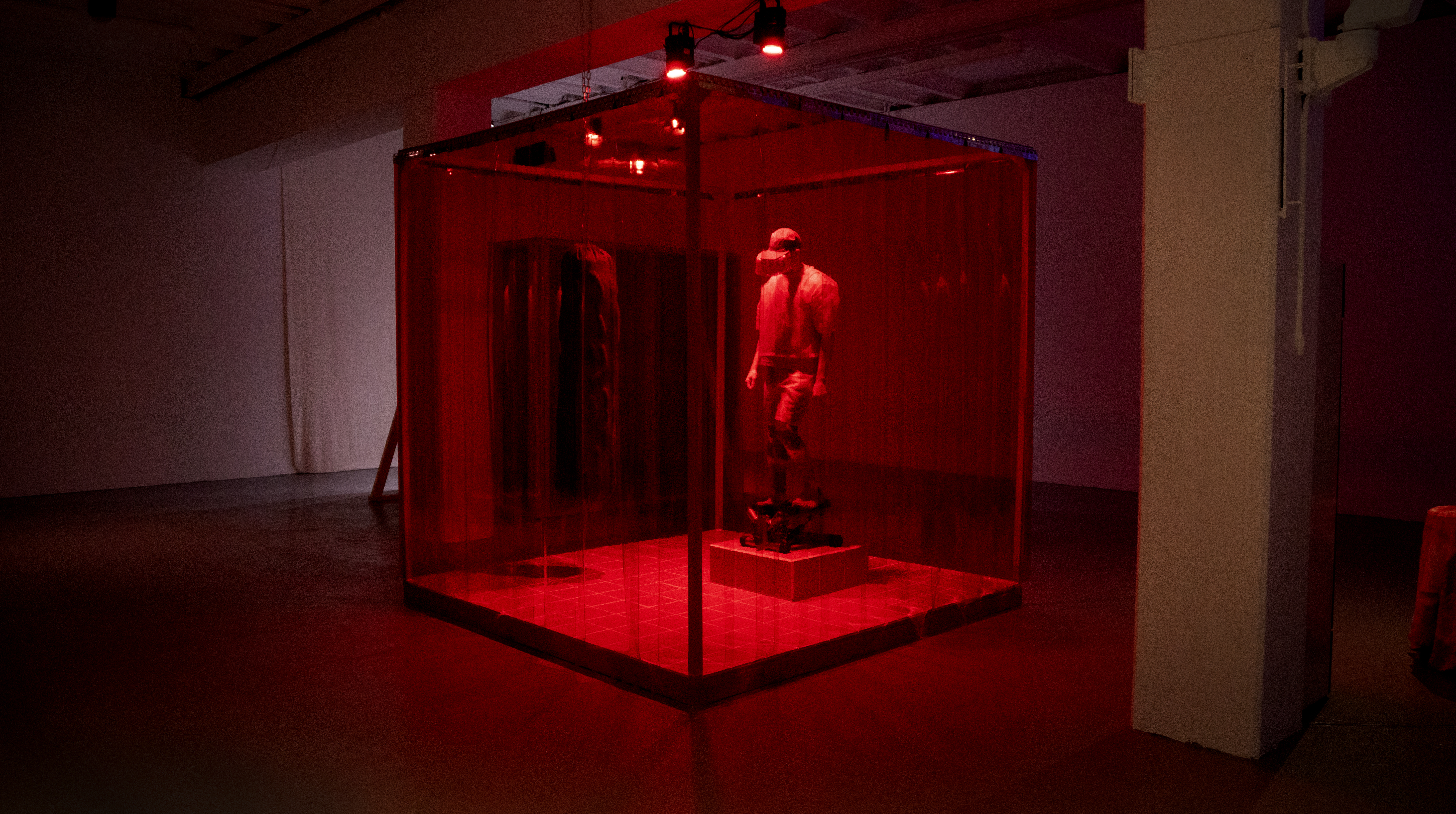
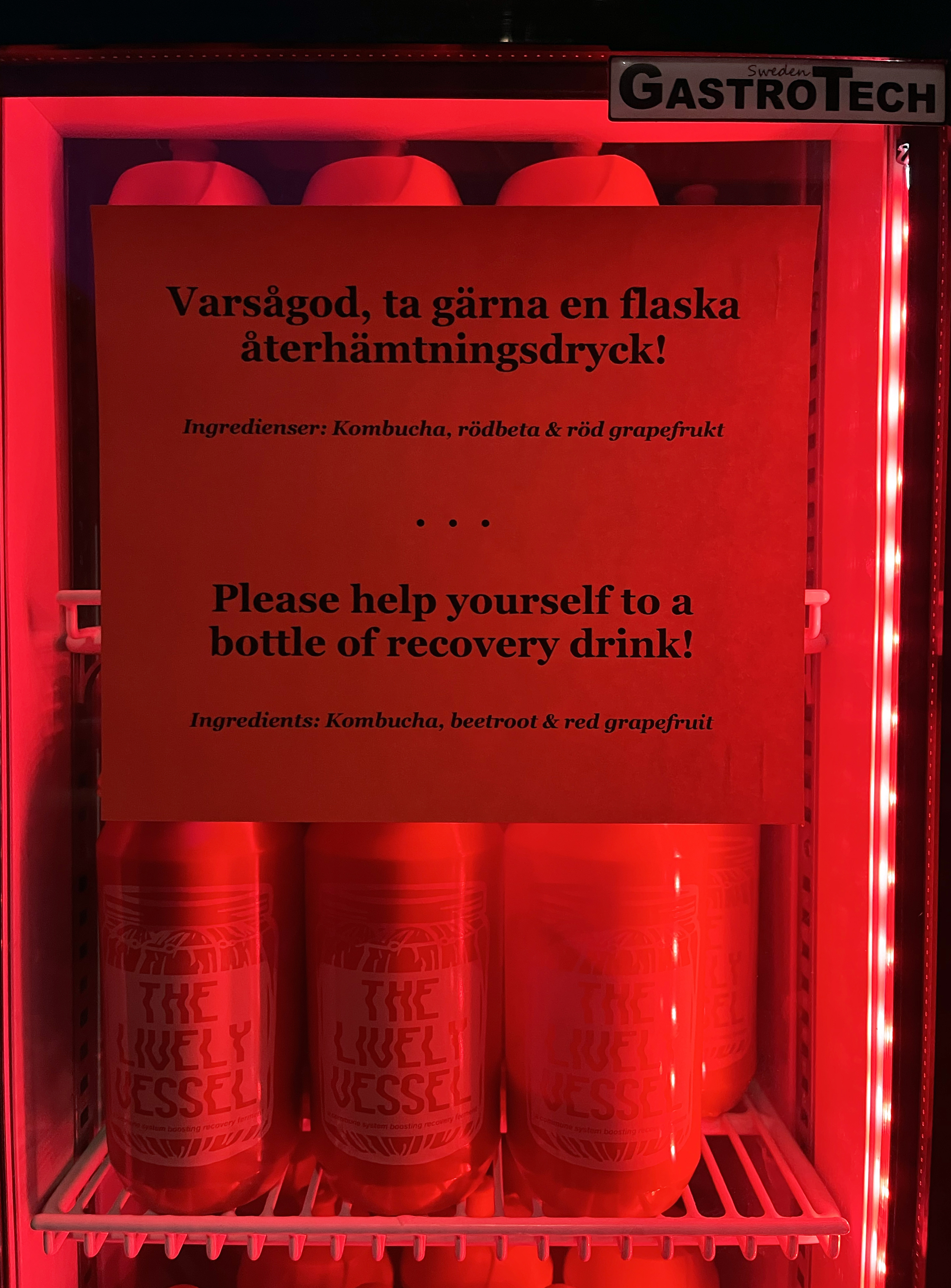
Research in microbiology is problematizing the traditional idea of the body as clearly defined and is complicating what it means to be human. This is because we are primarily made up of beneficial and pathogenic bacteria. In terms of our bodily composition, non-human DNA outnumbers human DNA. The human body's largest population of microorganisms is found in the gut. It is called the gut microbiota, where trillions of microorganisms coexist and its microbiome can contain 1000 times more "non-human" genes than human. This challenges the idea of humans as sovereign beings and proposes them instead as a traveling assemblage of microorganisms, a 'lively vessel,' in constant flux through our bodily porous and leaky boundaries with our bacterial environment.
In the space at Lilith Performance Studio, there is a fridge where the recovery drink 'The Lively Vessel' is served from red sports bottles. The drink consists of kombucha, beetroot juice, and red grapefruit juice and thus contains millions of lively lactic acid bacteria. Through the constant production of lactic acid, the drink and the body in the room are in an ongoing, simultaneous fermentation process. As a visitor, you are welcome to have a sports bottle and allow yourself to be recuperated by embodying the lively vessel and welcoming microbial coexistence. In Corpus Politicum: A Lively Vessel, I ask how we can metaphorically look at fermentation in general and lactic acid in particular wrapped up in this state-body relationship?
